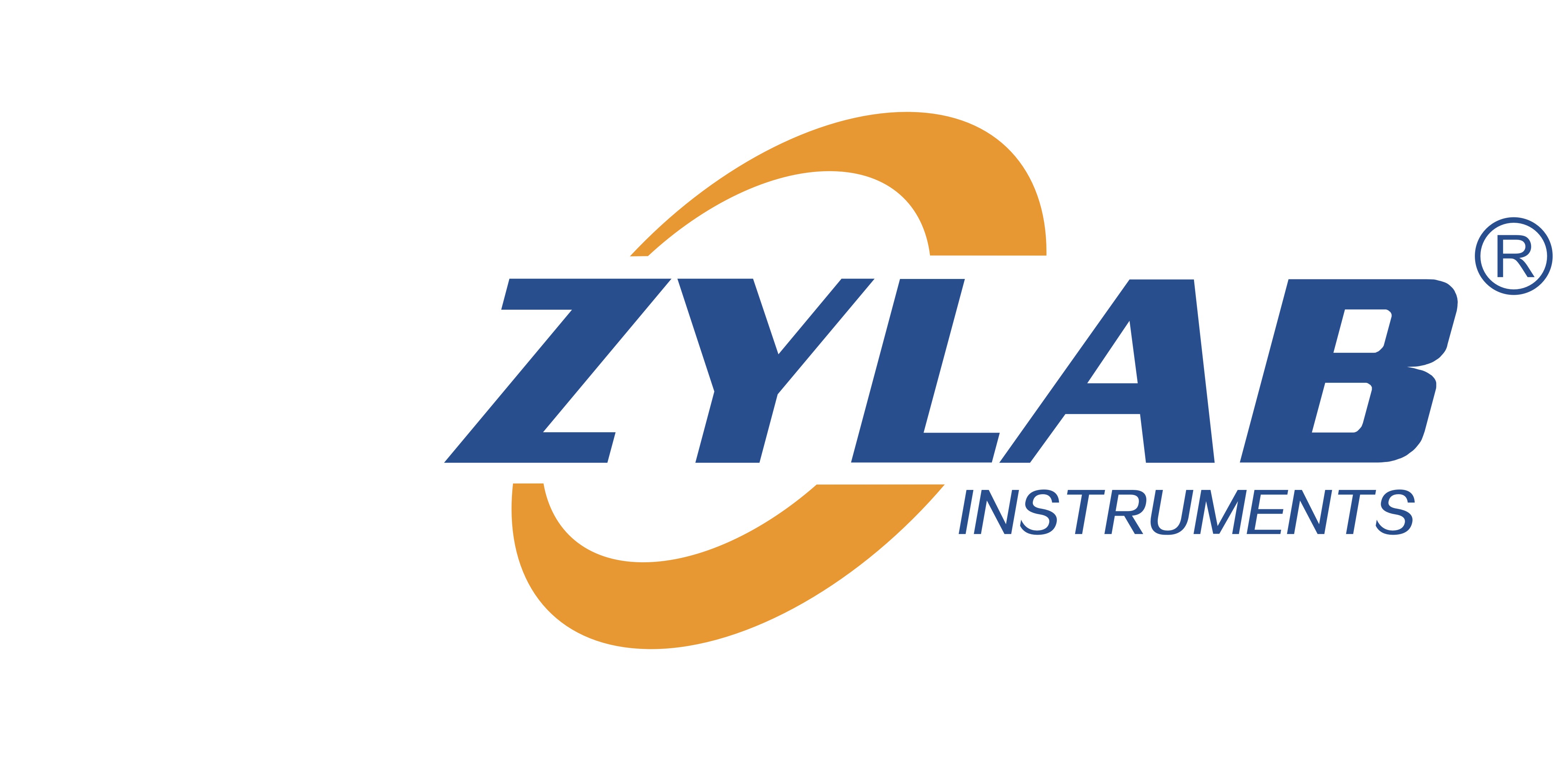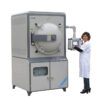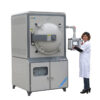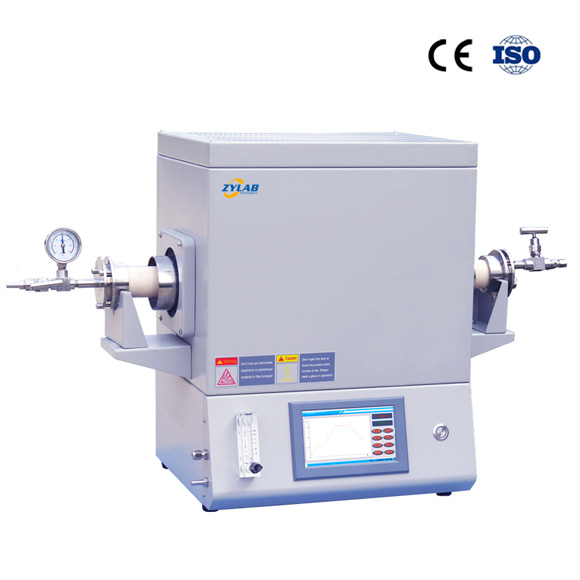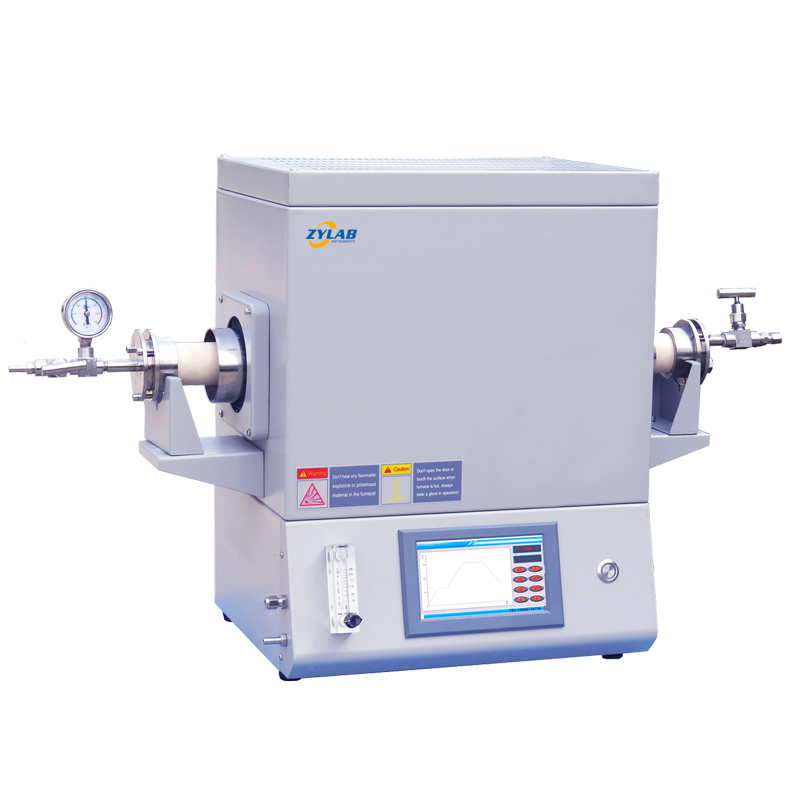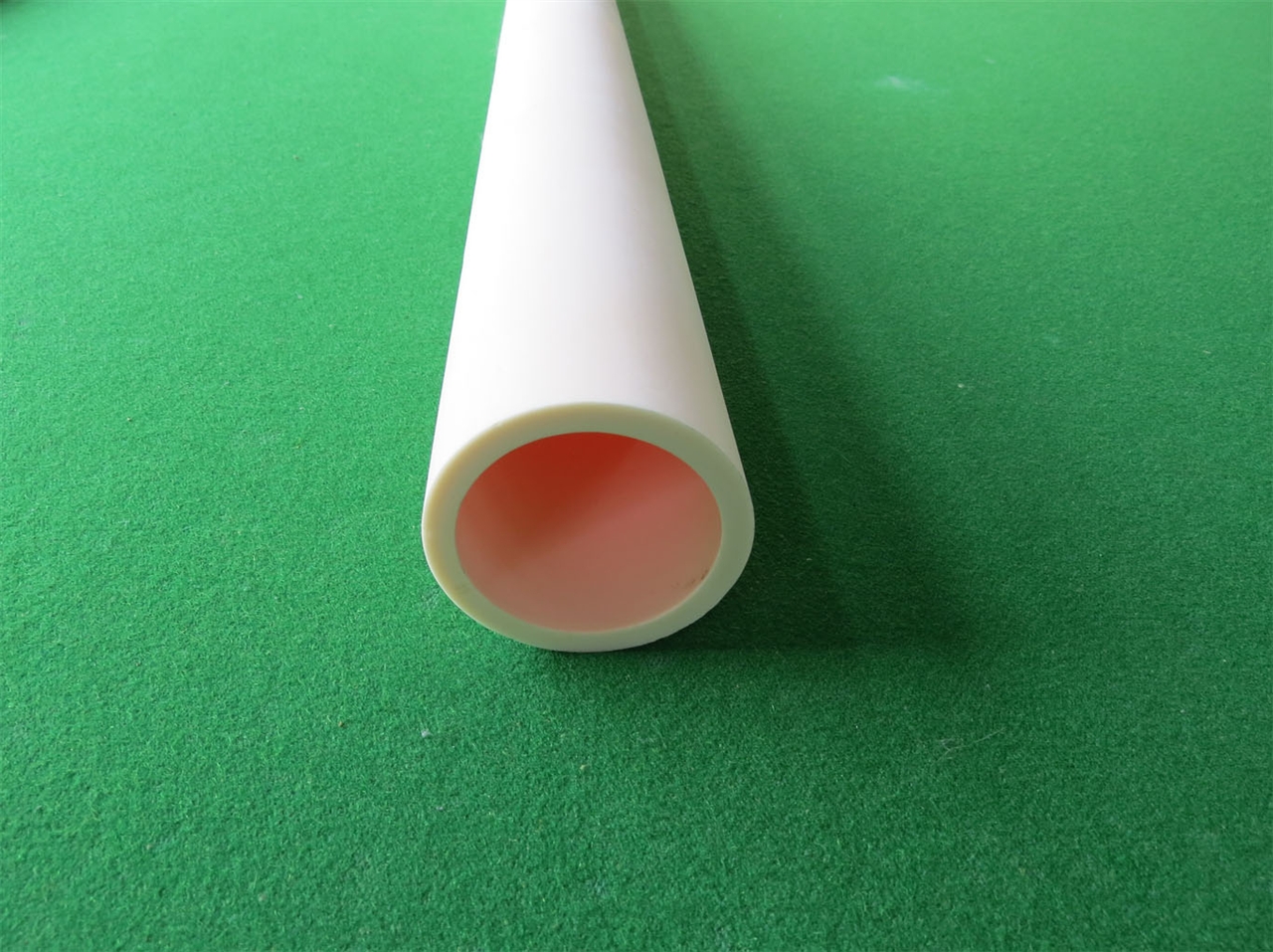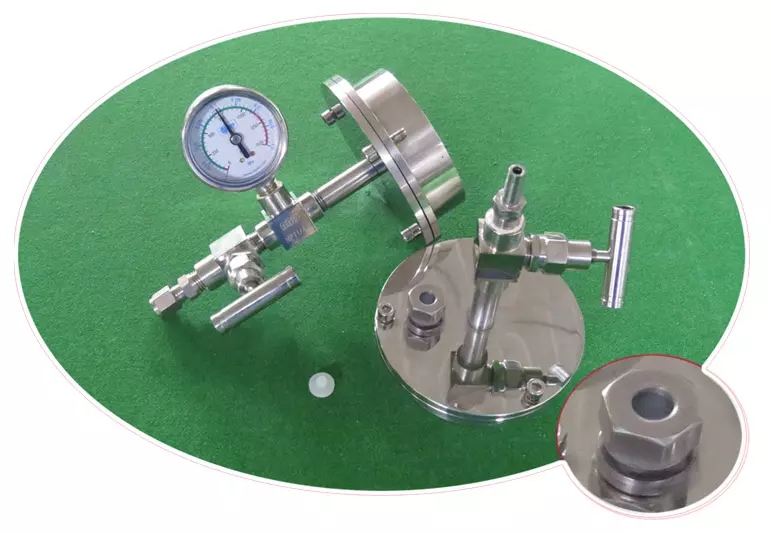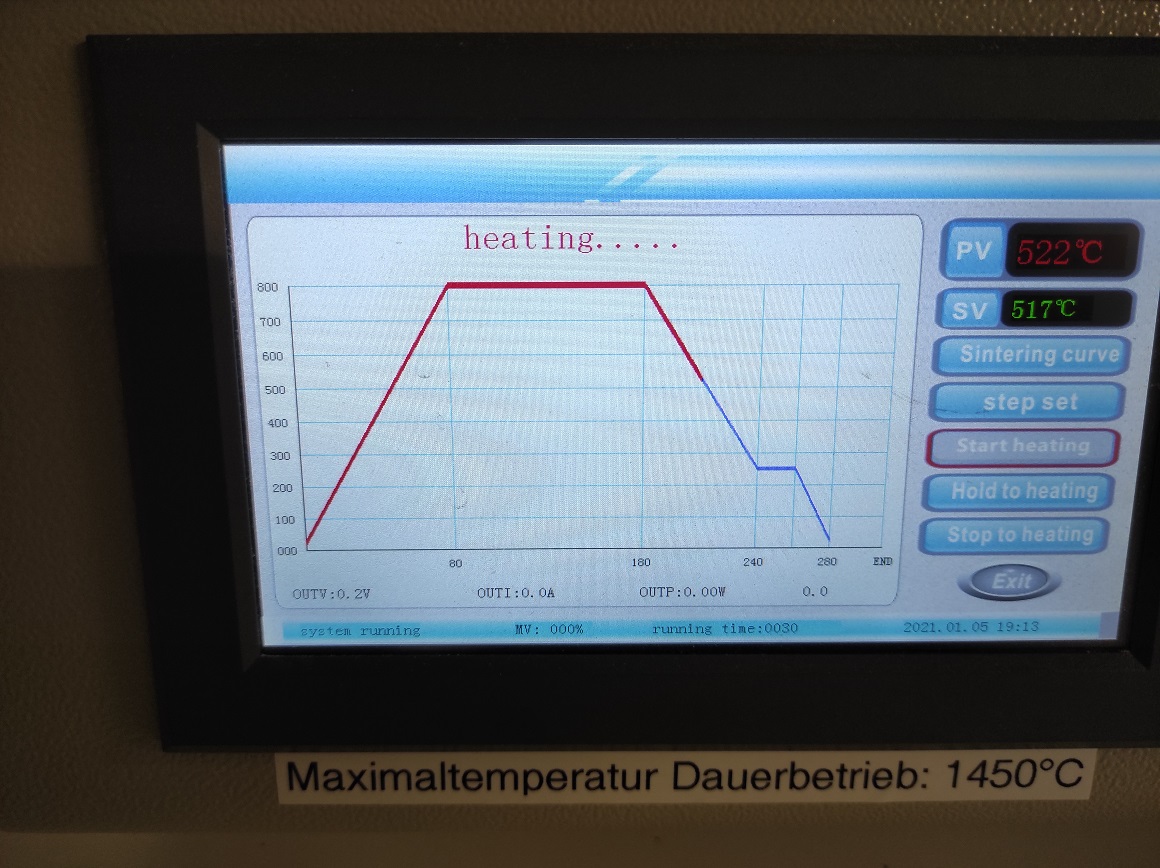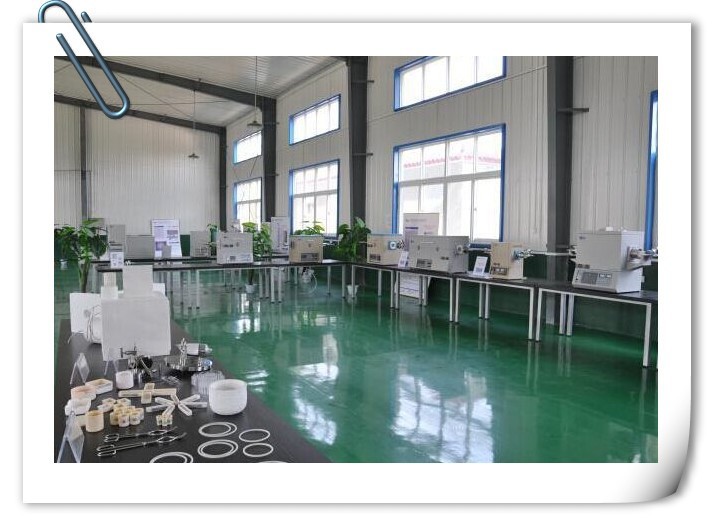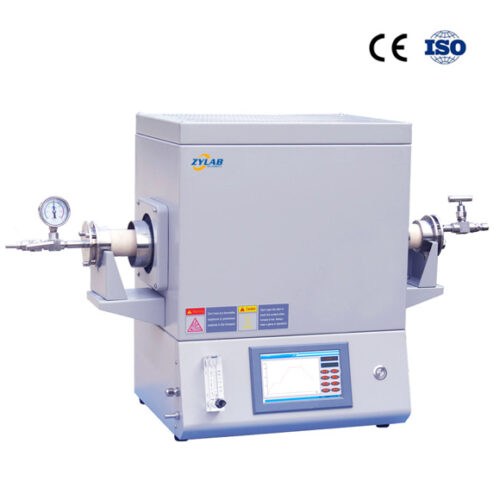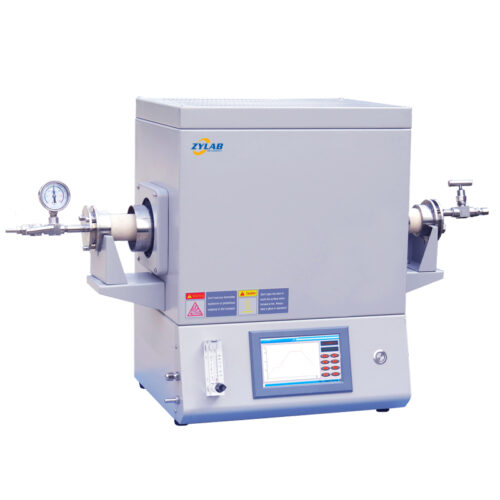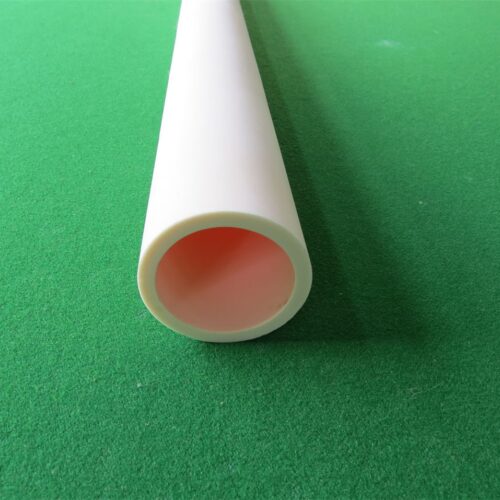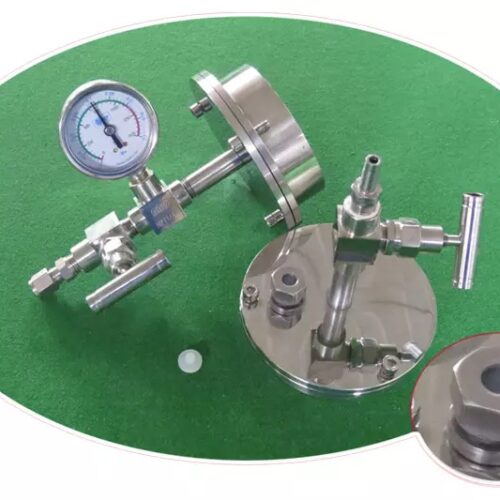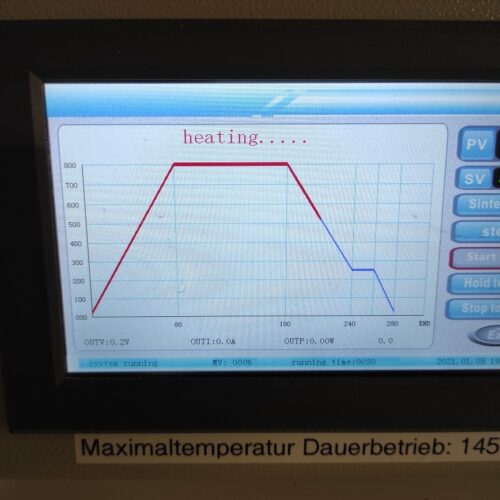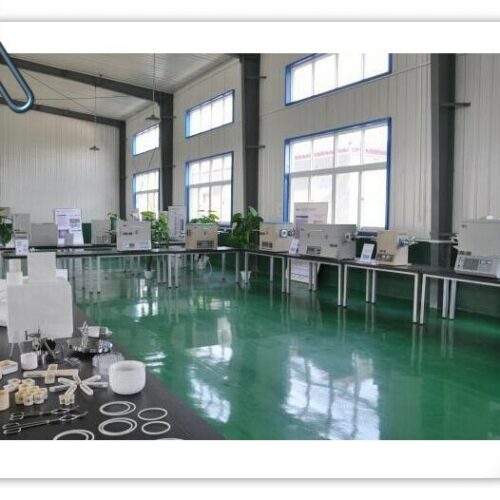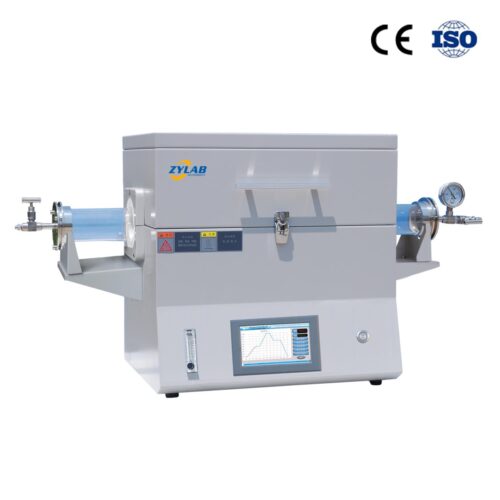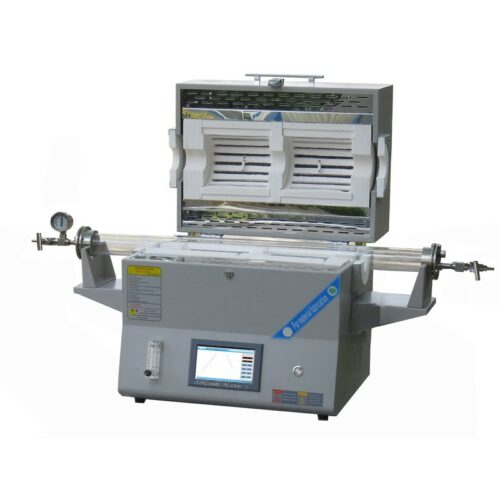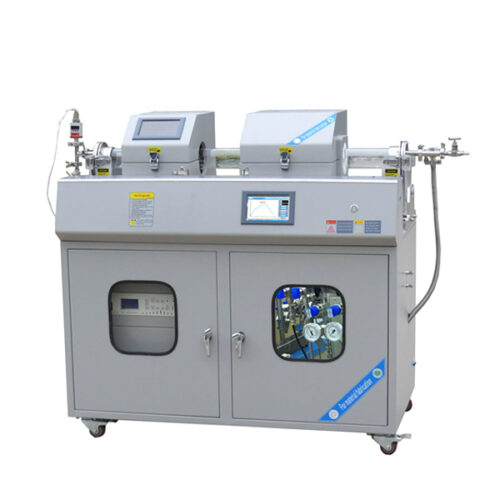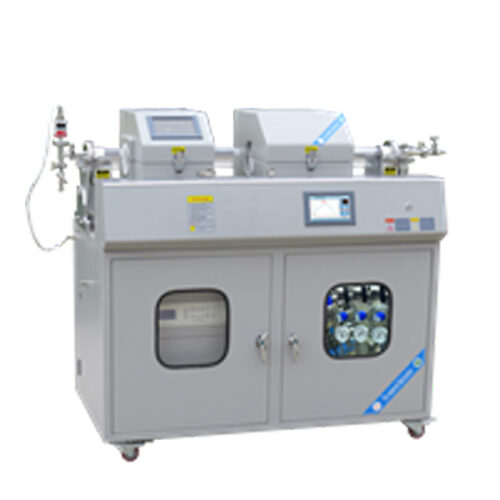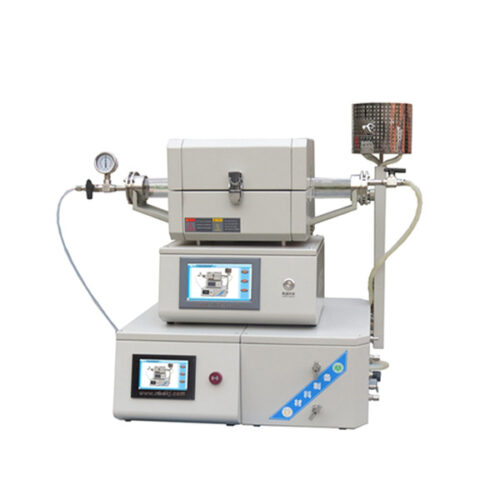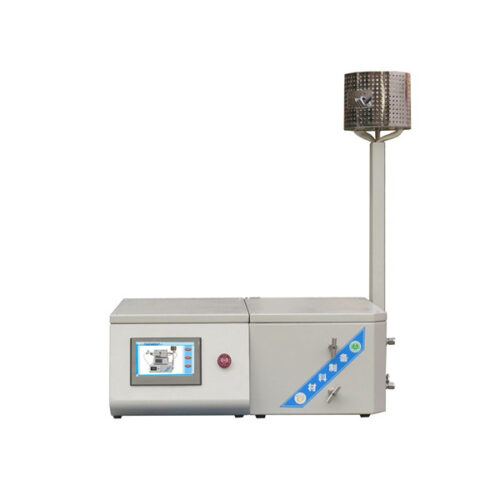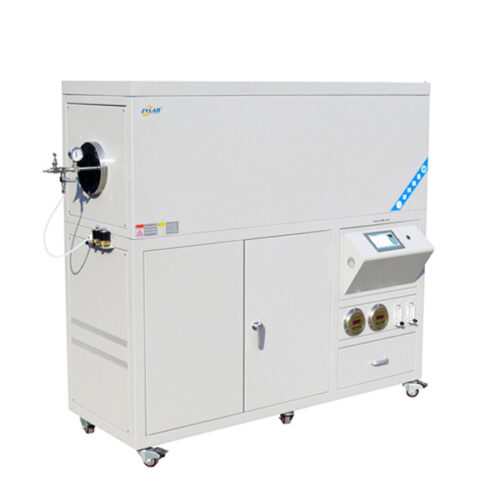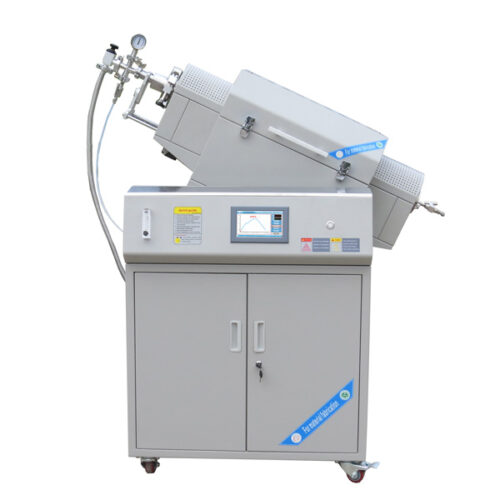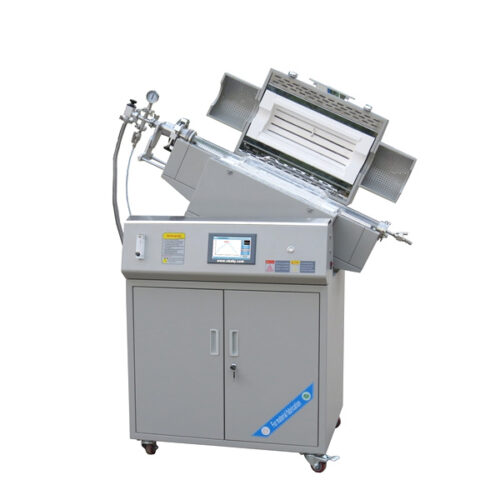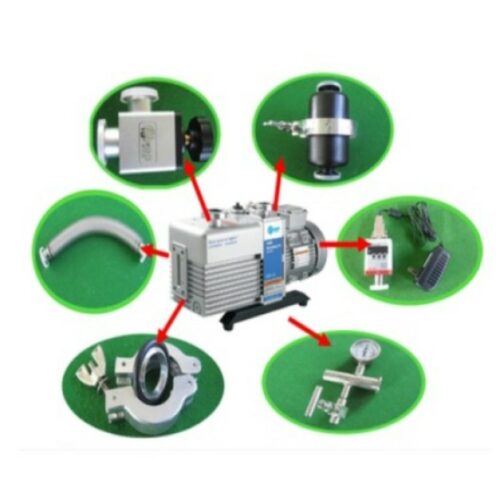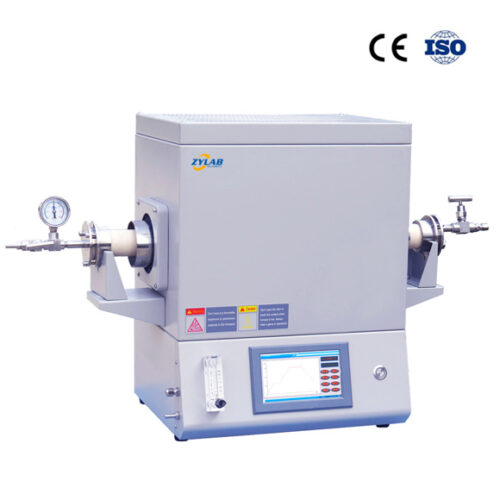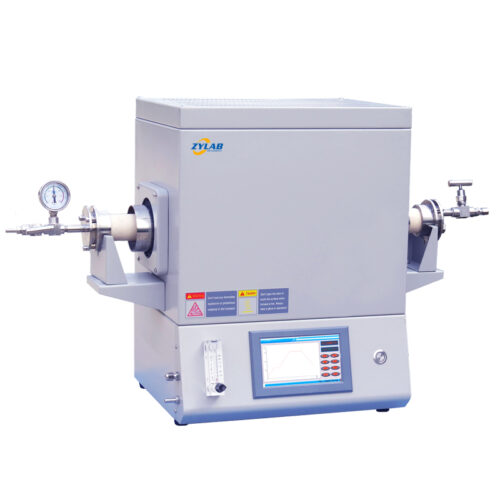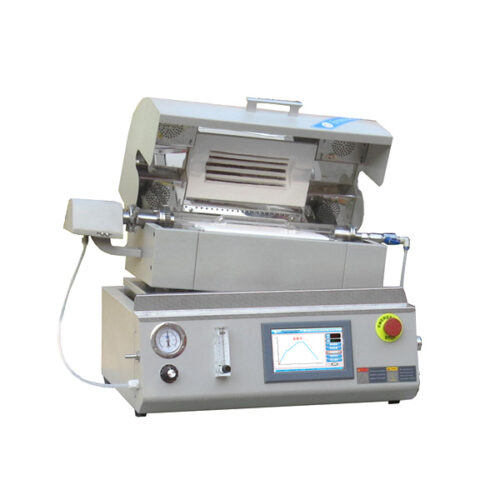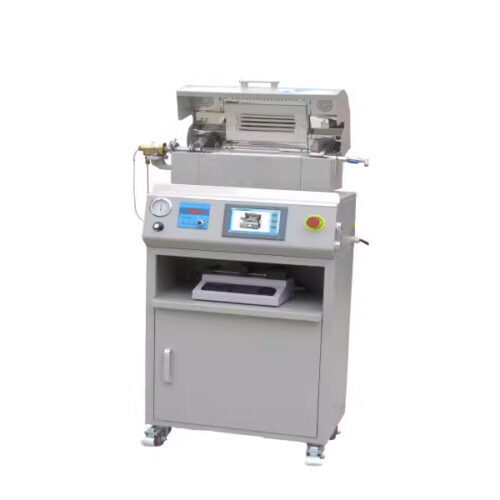Continuing Operating Temperature 1400.C Programmable Tube Furnace Along All Standard Accessories
Introduction:
This 1400.C programmable tube furnace is widely used in CVD experiment whose reaction temperature is around 1400 degree Celsius. It can also used in vacuum sintering, sintering under vacuum atmosphere protection, nano material preparation, battery material preparation and other research field.
Features:
1. Max. Temperature 1500.C, continuing working temperature 1400.C.
2.High purity alumina(ceramic) tube as furnace tube, with excellent corrosion resistance and high temperature resistance, longer service life.
3. 51 segments programmable and auto control.
4. Intelligent 7”Color Touch screen LCD man-machine English interface temperature controller, more intuitive and convenient operation, the graph of sintering curve with temperature changes makes you clear at a glance.
5. Can presetting 15 sintering curves to avoid the trouble caused by repeated settings of different experimental processes.
6. High purity alumina inorganic refractory, overall vacuum molding chamber, energy saving and ensure uniformity of temperature zone and a fast heating rate.
7.By using special lining import from Japan and high quality sic heating elements, to ensure excellent heating and long using life.
8. Double layers steel casing with fan cooling, to ensure the surface of furnace below 50.C, safety for the operator.
9. Come with gas flowmeter, atmosphere sintering more convenient.
10. Unique flange has a multi-function test holes, insert the corresponding electrode to test tube temperature or atmosphere environment.
11. Low power consumable, exquisite structure and light weight, it is the ideal tube furnace for labs and production in factory.
Technical Parameters:
| Model | T1500- IT |
| Product Name | 1400.C Programmable Tube Furnace |
| Display Mode | 7 inch color touch screen smart fuzzy PID control |
| Chamber Material | Imported high quality alumina fiber refraction insulation |
| Heating Element | High-purity sic heating element with excellent acid and corrosion resistance |
| Max.temperature | 1500℃ |
| Continue
Working Temperature |
≤1450℃(suggest 1400.C) |
| Heating Rate | ≤20℃/min(advice:10℃/min) |
| Heating Zone | One |
| Length of Heating Zone | 480mm(optional:310mm) |
| Tube Material | High Purity Alumina(Corundum tube) |
| Tube Size(mm) | Dia80x1200mm
Optional tube size: Φ50*1000/ Φ60*1000/ Φ80*1000/Φ50*1200/ Φ60*1200 |
| Sealing Mode | Vacuum Flange |
| Vacuum level | ≤10Pa (mechanical pump) |
| Pressure Measurement and Monitoring | Utilizing a mechanical pressure gauge with shock-absorbing oil to introduce damping effects during pressure fluctuations, reducing the back-and-forth oscillation of the pointer. |
| Gas supply control | Gas flow rate is controlled using a float flowmeter, integrated seamlessly with the equipment, and subjected to leakage testing before leaving the factory.
Control range: 20-200ml/min |
| Control Mode | Smart PID Control |
| Temperature Accuracy | +/- 1.C |
| Operating Interface | English Graphical Interface |
| Presetting Curve | 15 Presetting Curve, 51 Segments Programmable |
| Protection Setting | Over Temperature Alarm, Over Current Protection, Broken Thermocouple Prompt |
| Thermocouple | S Type |
| Power | 5kw |
| Working Voltage | 208-240V 50/60HZ(as requirement) |
| Dimensions(W*D*H) | 800x540x750mm |
| Standard Accessories | Alumina Tube, Vacuum Flange, Vacuum Gauge, Gas Flow Meter, Tube Block, O-ring, Protective Gloves, Crucible Hook, Manual Book |
| Certificate | CE, ISO |
| Warranty | 1 year (not including consumable parts, such as alumina tube, heating elements, thermocouple, etc), lifetime support. |
Which kinds of industry use this 1400.C Programmable Tube Furnace?
College & Universities, New Material Research, Chemistry, Medicine, Metallurgy, Electronics, Ceramic, etc.
Applications:
The applications of a 1400°C programmable tube furnace are diverse and can include various processes that require controlled heating up to that temperature. Some potential applications include:
- Materials Research: The tube furnace can be used for sintering, annealing, and heat treatment of various materials such as ceramics, metals, and composites.
- Chemical Synthesis: It can facilitate chemical reactions that require high temperatures, such as calcination, pyrolysis, and decomposition.
- Crystal Growth: The furnace can support crystal growth processes for materials like semiconductors, oxide crystals, and nanomaterials.
- Sample Preparation: In laboratories, the tube furnace can be used for sample preparation for analysis techniques like X-ray diffraction (XRD) or electron microscopy.
- Carbonization and Graphitization: It’s commonly used in the production of carbon materials such as carbon nanotubes, graphene, and activated carbon.
- Heat Treatment of Biomaterials: It can be used for sterilization, pyrolysis, and other heat treatments of biomaterials and biological samples.
- Catalysis Studies: Researchers can study catalytic reactions at high temperatures using this furnace.
- Powder Metallurgy: It facilitates processes like powder sintering and consolidation in the production of metallic and ceramic parts.
- Thermal Analysis: It can be used in conjunction with other analytical techniques for thermal analysis studies.
- Materials Testing: It enables testing the thermal properties of materials, such as thermal conductivity and expansion coefficients.
- CVD and PVD Processes: Chemical vapor deposition (CVD) and physical vapor deposition (PVD) processes can be carried out in the controlled atmosphere of the tube furnace.
These are just a few examples, and the actual applications may vary depending on the specific requirements of the research or industrial process。
Benefits:
Here are the concise benefits of a 1400°C programmable tube furnace:
- High Temperature Capability: Enables processing at elevated temperatures up to 1400°C.
- Precise Temperature Control: Allows for accurate control over temperature profiles.
- Uniform Heating: Ensures consistent processing of samples throughout.
- Versatility: Accommodates various sample sizes and shapes.
- Safety: Equipped with built-in safety features.
- Ease of Use: User-friendly interface for simple operation.
- Compact Design: Saves space while offering high performance.
- Energy Efficiency: Reduces energy consumption and costs.
- Controlled Atmosphere Capability: Operates under specific gas environments.
- Scalability: Modular design for easy expansion or integration.
